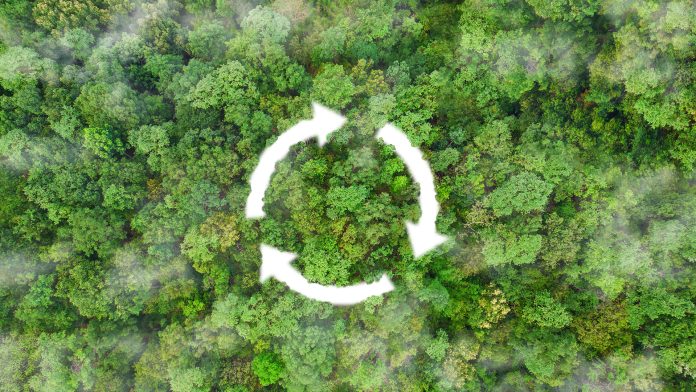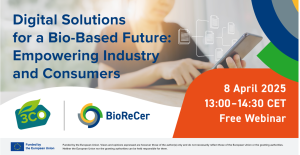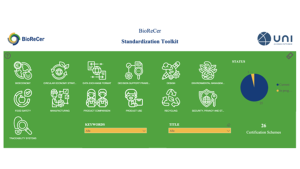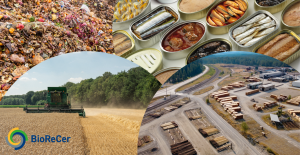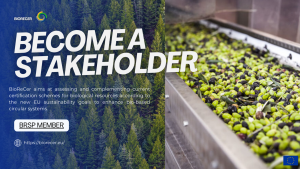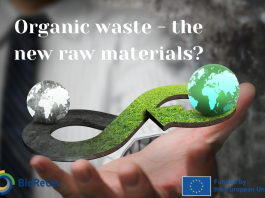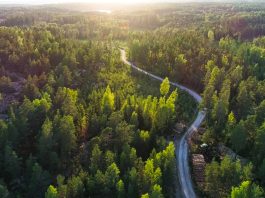BioReCer is advancing the EU bioeconomy by enhancing certification schemes for sustainability, circularity, and traceability of biological resources, ensuring a greener and more transparent future.
The EU-funded BioReCer (Biological Resources Certifications Schemes) project is entering its most critical phase, highlighting the vital role of stakeholder participation in shaping the future of the EU bioeconomy.¹ The current project results and upcoming insights by bioeconomy experts will be used to develop guidelines for existing certification schemes by including new criteria for certifying the sustainability, circularity, origin, and traceability of biological resources from waste to product (e.g., bio-plastics, fertilisers, nutraceuticals).
As emphasised by the European Commission in its Competitiveness Compass for the EU, life sciences and biotechnology are pivotal in driving innovation across sectors such as agriculture, energy, food, and pharmaceuticals.² These advancements are not only key to economic growth but also to achieving sustainability by reducing reliance on fossil fuels and fostering development in rural areas. The EU Bioeconomy Strategy for 2025-2026 positions Europe at the forefront of the rapidly growing bioeconomy market, unlocking the potential of bio-based materials, biomanufacturing, and agri-biotech.
However, the successful transition to a bio-based economy hinges on consumer acceptance of bio-based products and the bio-based industry’s adoption of robust certification standards. The current certification schemes need to be strengthened since not all of them sufficiently meet the specific requirements for biological resources.
BioReCer is tackling these challenges head-on by developing enhanced criteria for certifying biological resources. These advancements aim to ensure that certification schemes reflect the needs of stakeholders across the EU bioeconomy, from policymakers to consumers.
Unleashing the potential of biological resources
Biological residues and waste, such as food waste, organic municipal waste (water), and by-products from forestry, agriculture, and fisheries, are often underutilised. While these materials hold immense potential to replace fossil-based feedstocks, a lack of comprehensive certification schemes has limited their industrial applications. BioReCer is bridging this gap by introducing new standards to support the valorisation of biological resources. These standards ensure transparency across the supply chain, boosting both consumer trust and industrial uptake.
Certification plays a crucial role in verifying that products meet specific sustainability, circularity, and traceability requirements. However, existing labels and certification schemes were primarily designed for traditional feedstocks, such as wood, and do not fully address the complexities of bio-based products derived from waste. BioReCer’s innovations aim to fill this gap, ensuring that certification schemes are adaptable for modern value chains that often involve multiple intermediate processing steps.
Key achievements of BioReCer
Since its launch in September 2022, BioReCer has achieved significant milestones, each contributing to a more sustainable and competitive bioeconomy:
- Assessment of feedstock flows in four case studies
BioReCer conducted Material Flow Analyses (MFAs) in four key sectors—fishery, forestry, agriculture, and municipalities. These case studies highlighted that substantial volumes of organic residues remain uncollected and under-valorised, with only small percentages entering the bio-based industry (e.g., forestry: 3%, Organic Fraction of Municipal Solid Waste (OFMSW) 2%, sewage sludge: 0.3%). By mapping feedstock flows, BioReCer identified opportunities for optimising closed-loop processes and improving the circular bio-based economy. - The BioReCer ICT Tool (BIT)
At the heart of the project lies the BioReCer ICT Tool (BIT), a cutting-edge digital platform that enhances the traceability and environmental performance of bio-based value chains. This tool can gather real-time data on feedstock origin and characteristics and calculate the CO₂ emissions of transport, empowering stakeholders to make eco-conscious decisions. The BIT also helps companies assess their compliance with the BioReCer framework, a set of principles and criteria that can be used by existing certification schemes to complement their assessments. Currently, the BIT is in its final development stage and has benefited immensely from stakeholder feedback. To showcase these and other innovative digital tools, a free webinar is scheduled for 8 April 2025, from 13:00 to 14:00 CET: the event offers an excellent opportunity to understand the future of digital technologies in the bioeconomy. Read more on the webinar, and for the free registration, click here.
- Standardisation Toolkit
BioReCer has compiled a comprehensive Standardisation Toolkit featuring 149 national and international standards (e.g., UNI, EN, and ISO standards) and 26 certification schemes (including key schemes such as ISCC) that span various aspects of the bio-based sector, with particular focus on circular economy strategies, environmental management, recycling, product usage, and product comparison. This resource offers anyone interested in the bio-based sector actionable insights into best practices, facilitating the adoption of sustainable and circular strategies across the bio-based sector.
- Policy Recommendations
Leveraging findings from its material flow analyses and case studies, BioReCer has developed a concise Policy Brief with actionable recommendations for policymakers. These include setting clear sustainability targets, fostering the use of organic residues in bio-based products, and ensuring that adapted certification schemes are central to combating greenwashing and enhancing consumer trust:
- Clearly define organic residues and the corresponding sustainability ambitions for bio-based materials and products, and clearly define potential entry points of organic residues into the processing value chains.
- Foster the use of organic residues for bio-based products in the EU, especially in cases in which organic residues cannot be reduced or avoided, and legitimise the use with safety standards whenever necessary.
- Clearly set quantitative sustainability targets and strategies for the utilisation of organic residues.
- Clarify, where possible, future bio-based requirements of products and which of these requirements can be fulfilled by organic residues.
- Adapted certification schemes should be recognised as the central solution to avoid greenwashing and consumer deception and to guarantee corporate due diligence.
- Implementation of mass balance and free attribution (MBFA) in EU policy to facilitate the transformation of the EU economy to a circular bioeconomy.
- Concise consumer information and awareness activities on bio-based products should be promoted.
A final Policy Brief, incorporating additional insights, will be released in the summer of 2025.
Stakeholder engagement: A pillar of BioReCer’s success
BioReCer’s success is deeply rooted in collaboration with stakeholders from across the bioeconomy. The BioReCer Stakeholders Platform (BRSP) serves as a hub for engagement, enabling stakeholders to share their expertise, identify challenges, and provide feedback on project developments. From workshops and webinars to focus groups and surveys, stakeholder contributions have been instrumental in refining tools like the BIT and enhancing certification schemes.
The BRSP remains open for participation, inviting stakeholders to influence upcoming recommendations for policymakers and certification bodies. Interested parties can register at https://biorecer.eu/brsp/.
Looking ahead
As BioReCer enters its final phase, the project’s focus is on consolidating its findings into guidelines for certification schemes that encompass sustainability, origin, and traceability criteria. These guidelines aim to transform biological residues and waste into valuable resources, driving Europe’s green transition while ensuring economic and environmental sustainability.
For more information, visit the project website at
https://biorecer.eu, and watch the project video for a quick overview.
References
- The BioReCer consortium is composed by: Fundacion Centro Gallego de investigaciones del agua Cetaqua, Centro Tecnologico Del Agua; Universita Degli Studi Di Roma Unitelma Sapienza; Brunel University London; Universidad De Santiago De Compostela; Uni – Ente Italiano Di Normazione; Rise Processum Ab; Asociacion Nacional De Fabricantes De Conservas De Pescados Y Mariscos, Centro Tecnico Nacional De Conservacion DeProductos De La Pesca (ANFACO-CECOPESCA); Universita Politecnica Delle Marche; Meo Carbon Solutions Gmbh; Cap Holding Spa; Nova-Institut Fur Politische Und Okologische Innovation Gmbh; Spring Sustainable Processes and Resources For Innovation and National Growth; Easy Global Market Sas (EGM); Ethniko Kentro Erevnas Kai Technologikis Anaptyxis (CERTH); Cittadinanzattiva (ACN); Betania Legio SL. https://biorecer.eu/consortium/
- COM(2025) 30 final, Communication from the Commission to the European Parliament, the European Council, The Council, the European Economic and Social Committee and the Committee of the Regions. A Competitiveness Compass for the Eu https://commission.europa.eu/document/download/10017eb1-4722-4333-add2-e0ed18105a34_en
Acknowledgements
The project BioReCer (No 101060684) has received funding from the European Union.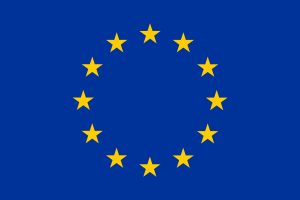 Views and opinions expressed are, however, those of the author(s) only and do not necessarily reflect those of the European Union or European Research Executive Agency. Neither the European Union nor the granting authority can be held responsible for them.
Views and opinions expressed are, however, those of the author(s) only and do not necessarily reflect those of the European Union or European Research Executive Agency. Neither the European Union nor the granting authority can be held responsible for them.
This article is part of the communication activities carried out by Cittadinanzattiva/Active Citizenship Network in the context of the EU-funded project BioReCer (Biological Resources Certifications Schemes) with the support of Innovation News Network.
For this special feature, the authors thank Jack Thomas of Innovation News Network; Anke Schwarzenberger of nova-Institut, responsible for Communication activities in BioReCer; Lucia Jimena Gonzalez and Pedro Villanueva of CETAQUA, BioReCer project coordinator.
Contributors
Daniela Quaggia
Senior Project Manager at Cittadinanzattiva
Mariano Votta
Responsible for EU Affairs at Cittadinanzattiva
Tiziana Toto
Responsible for Consumer Policies at Cittadinanzattiva
Please note, this article will also appear in the 21st edition of our quarterly publication.

